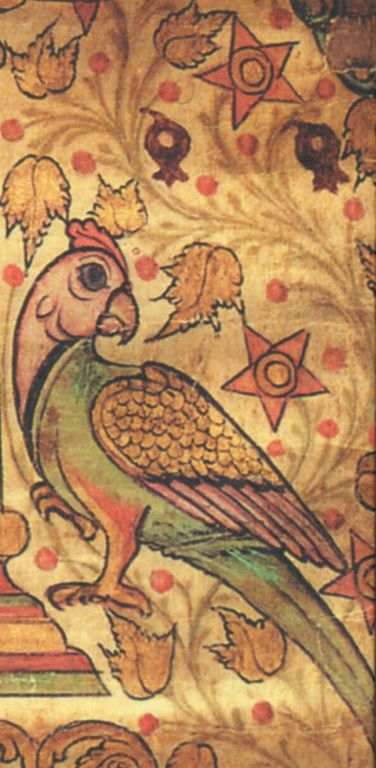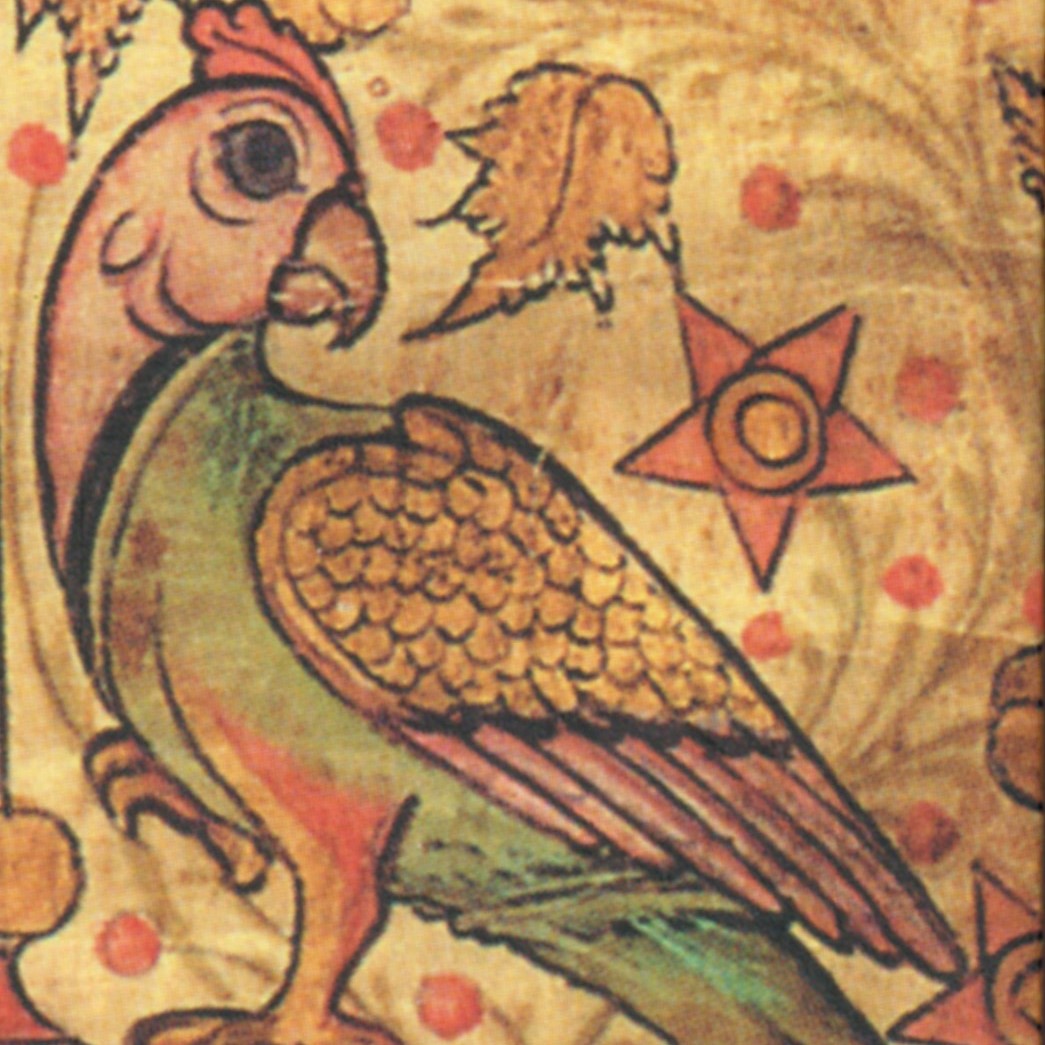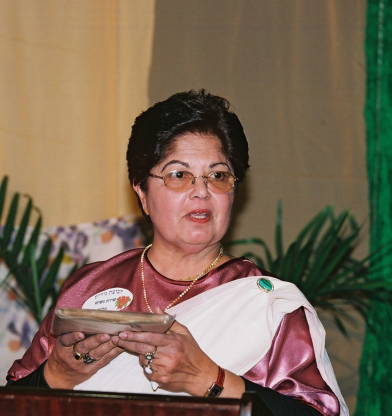1997/ 2023
3. Song of the Second Temple’s Destruction (Leaving Kodungallur)
3a. Sung and recorded by Venus Lane, Tiberias, March 8, 2023; I-8
3b. Jacobai E. Cohen. Recorded by Barbara Johnson, Kochi ,1997; I-8.
Ŏlaka pŏkatu ñāyaṃ tanna stutikkunnu
Omanĕ āya ŏlaku paḍiccūtĕ
1. Creator of the world, we are praising You,
Who made this world so very beautiful—
Creator of everything so long ago!
We, the humble children of Israel,
Standing here like servants, we are praising You.
In the same way, once they stood in praise—
The holy Cohanim; they stood in purity.
In purity they stood, blowing the shofar.2. Throughout all Israel—four hundred kātam[1] square—
Hearing the sound, Your servants awoke.
The beloved children all gathered there.
And they could see a brilliant light appear,
Bright as the moon of the fourteenth night,
Bright like a star with a halo around.
While gathering together in that place,
Creator of the world, they were praising You.3. But as they were there, praising in that way,
Then hatred began to spread out like a plague.
In hatred they committed so many sins
That God Himself could not bear to see!
So He allowed them to be enslaved,
Under the hand of Caesar the depraved.
With cruelty they were shattered and slain,
The forsaken children of Israel.4. They scattered like fluttering, flapping birds.
O Great God, please comfort them!
Then the Great God showed mercy to them.
And a few of them who were remaining there
Gathered together and then they thought:
“To a strong country now we must go.”
So they came to good Kodungallur,
And a fine foundation for a paḷḷi they laid.5. As they were leading a good life there,
A beloved prophet also arrived—
The one and only Eliyahu Hanabi!
While leading the beautiful prayers he said:
“Three times thirty years you will live,
And then there will be devastation here.”
Wisely they preserved it in their minds.
In their minds they inscribed the news.6. Exactly as the news had been told,
Excellent Kodungallur was destroyed.
Then they came together, and they thought:
“To a strong country now we must go.
Kochi harbor itself is that place!”
There a fine paḷḷi foundation they laid.
Be blessed, be blessed, forever be blessed.
Most blessed are You, O Lord Tamburan.
This is the only known Malayalam song that records and expands on the origin story that Kerala Jews arrived in Kodungallur from the land of Israel after the destruction of the Second Temple, then moved to Kochi after the destruction of Kodungallur. Though the text of the song does not mention the destruction of the Second Temple, the song title does in two of the three notebooks where this song appears. Given the song’s conclusion with the departure from Kodungallur and the arrival in Kochi, it is not surprising that all three notebooks are from Kochi—one from the Paradesi community and two from Kadavumbhagam.
Literary elements in this song are found elsewhere in the repertoire. Distressed people are compared to fluttering birds in songs 1 and 55; in several songs, the first act on arrival in a new place is to lay a foundation for a paḷḷi (songs 2, 4, 5); and the term “Kochi Port” is also found in song 11. As in “Moshe and the Promised Land” (song 53), the size of the entire land of Israel is referred to with the old Malayalam measure kātam substituting for the old Hebrew measurement parasang used in a midrash describing the land that Moshe viewed as “a square of 400 parasangs” (Ginzberg 1968, 3:442). The brilliant light described in the second verse is compared to the light of the full moon, with the phrase “twice seven” standing for the number fourteen, as in several other Kerala Jewish songs.
A dramatic feature of the origin story in this song is the appearance of Eliyahu Hanabi (the Prophet Elijah) to warn of Kodungallur’s destruction. Other Jewish legends about this biblical prophet are found in Kochini oral history, as in the folklore of many other Jewish communities (Daniel and Johnson 1975, 9, 57). As in song 58 (based on the biblical book of Esther), his appearance in Kodungallur conveyed an important warning to the Jews.
A preliminary recording of this song was made in 1997 in Kochi by Jacobai E. Cohen of the Paradesi community, who spontaneously recalled only the fourth verse (having discussed the text some years earlier with P.M. Jussay). When given the text to be “tuned,” Cohen chose to use the drawn-out melody of the piyyut ’Eḥad Yaḥid (’Areshet 1980, 42), which is also used for Yigdal ’Elohim Ḥai (Sefer Tefilat haḤodesh 1931, 17) on the eve of Simḥat Torah.
Following the lead of Cohen’s partial recording, Venus Lane recorded the entire song in 2023.
_____________________________
[1] A kātam is an old Malayalam measurement equivalent to about five English miles.







